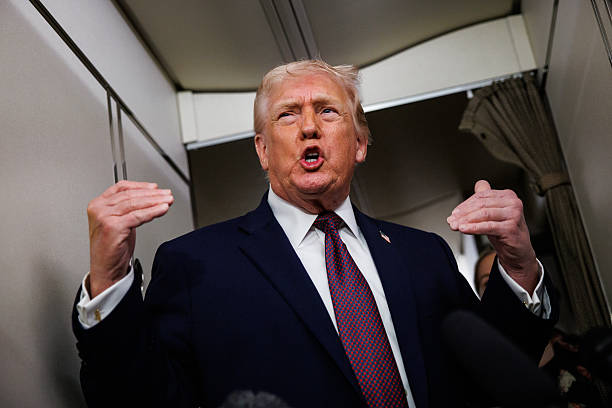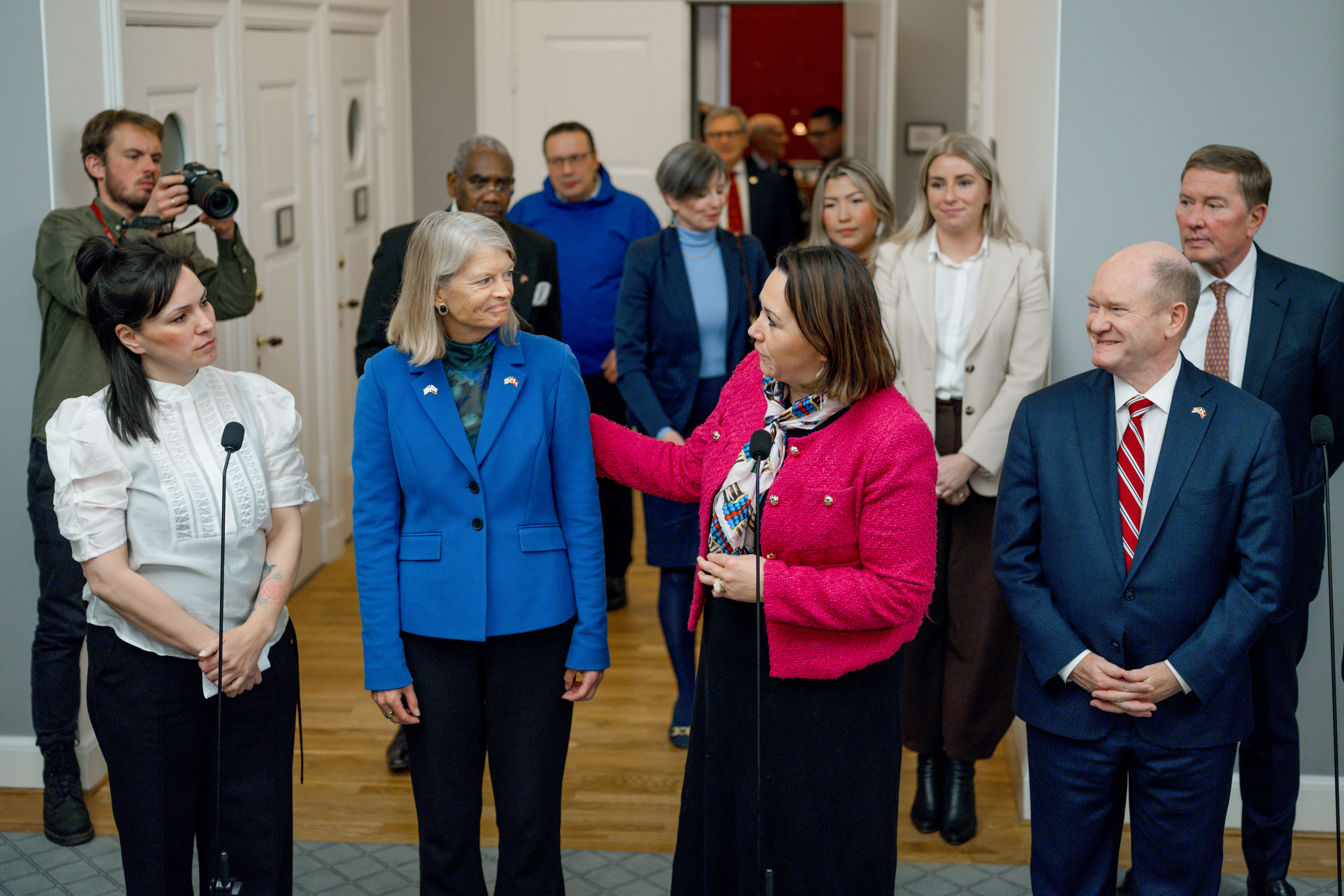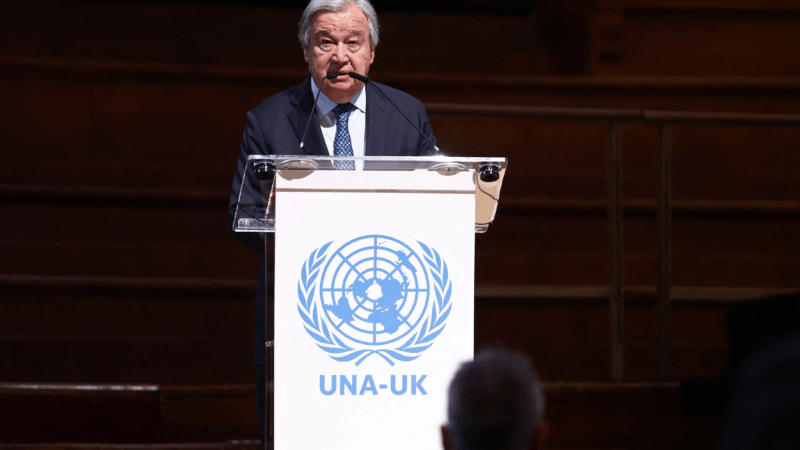Top scientists warn that Trump policies are causing a ‘climate of fear’ in research
Nearly 2,000 leading American scientists, including dozens of Nobel Prize winners, have issued a stark warning that the U.S. lead in science is being “decimated” by the Trump administration’s cuts to research and a growing “climate of fear” that jeopardizes independent research.
An open letter from members of the U.S. National Academies of Sciences, Engineering, and Medicine made public on Monday outlines grave concerns.
“A climate of fear has descended on the research community,” the letter says. Researchers fearing for their jobs are “removing their names from publications, abandoning studies, and rewriting grant proposals and papers to remove scientifically accurate terms (such as ‘climate change’) that agencies are flagging as objectionable.”
“Science gave us the smartphones in our pockets, the navigation systems in our cars, and life-saving medical care,” the letter says. “We count on engineers when we drive across bridges and fly in airplanes. Businesses and farmers rely on science and engineering for product innovation, technological advances, and weather forecasting. Science helps humanity protect the planet and keeps pollutants and toxins out of our air, water, and food.”
As the administration cuts federal funding for scientific agencies, ends grants to scientists and defunds laboratories, there is “real danger in this moment,” the authors say. “[T]he nation’s scientific enterprise is being decimated.”
In recent weeks, the National Institutes of Health (NIH) has halted consideration of new grant applications and delayed decisions about funding disease research. As of Tuesday, layoff notices were also going out at NIH and FDA, but details were not immediately known.
In addition, the Trump White House’s effort to eliminate what it views as “woke” initiatives have included banning words and phrases such as “health disparities” and “climate science.” Just days ago, the NIH also rescinded a scientific integrity policy aimed at thwarting political interference in order to “ensure alignment with the Administration’s priorities.”
“We’re seeing this across sectors in which the government is exerting pressure to make changes that conform with ideological perspectives rather than … intellectual independence,” according to Dr. Steven Woolf, a professor of family medicine and population health at Virginia Commonwealth University, who is a co-author of the letter.
“The very research that would help improve our health is being defunded,” he says. “This is likely to have the opposite effect.”
In one instance, a public health study about inequities in smoking for rural young adults was withdrawn from publication in Public Health Reports, the official journal of the U.S. Surgeon General and the U.S. Public Health Service. The study’s authors say that after the paper was accepted for publication, editors instructed them to remove language relating to gender and sexual orientation, citing compliance with Trump’s executive order.
As a result, study co-author Tamar Antin, director of the Center for Critical Public Health, says she and her colleagues opted to withdraw publication in the peer-reviewed journal.
“The expectation that we would remove that information really felt like political interference in science and in fact, was clearly interference in science,” she says.
Antin says she and her fellow researchers plan to submit the paper elsewhere, but “we will not be submitting it to a journal that is supported by the federal government at this time, because this is a sign to us that they are not upholding principles of scientific integrity.”
NPR reached out to the Department of Health and Human Services, which oversees Public Health Reports about the study’s withdrawal and the scientists’ open letter but did not immediately receive a reply.
The assault on scientific inquiry is unlike anything that Dr. Ana V. Diez Roux, a professor of epidemiology at the Dornsife School of Public Health at Drexel University, says she has seen in her 30 years of research. Like Woolf, Roux is a co-author of the open letter.
“I think this is what’s so shocking — it’s arbitrary cuts to research, federally funded research, completely arbitrary and sudden cuts to projects that have been approved and reviewed by committees of scientists,” Roux says.
She says she’s concerned that the Trump administration’s stifling of scientific freedom could have a chilling effect on the future of science in the U.S.
“I fear that we are going to lose our ability to attract these very, very capable young scientists,” she says.
“In the past they have made careers in the United States and have contributed to the health of the American people in many ways and globally,” Roux says. “Now, [they may] feel that they’re no longer welcome here.”
VCU’s Woolf agrees, saying public investment in U.S. science since the end of World War II has made it “the envy of the world.”
But that could easily be undone, he cautions. “The broad, sweeping effects of the administration’s attack on … our research infrastructure is going to affect the lives of Americans in diverse ways,” he says. “And the effects are likely to be long-lasting.”
Trump has rolled out many of the Project 2025 policies he once claimed ignorance about
Some of the 2025 policies that have been implemented include cracking down on immigration and dismantling the Department of Education.
The 2026 Olympics are the most widespread in history. See what’s happening where
Competitions will be hosted at 25 venues spanning an area of more than 8,000 square miles. Here's what's happening at each of the four main clusters.
U.S. lawmakers wrap reassurance tour in Denmark as tensions around Greenland grow
A bipartisan congressional delegation traveled to Denmark to try to deescalate rising tensions. Just as they were finishing, President Trump announced new tariffs on the country until it agrees to his plan of acquiring Greenland.
Can exercise and anti-inflammatories fend off aging? A study aims to find out
New research is underway to test whether a combination of high-intensity interval training and generic medicines can slow down aging and fend off age-related diseases. Here's how it might work.
High-speed trains collide after one derails in southern Spain, killing at least 21
The crash happened in Spain's Andalusia province. Officials fear the death toll may rise.
United Nations leaders bemoan global turmoil as the General Assembly turns 80
On Saturday, the UNGA celebrated its 80th birthday in London. Speakers including U.N. Secretary-General António Guterres addressed global uncertainty during the second term of President Trump.






